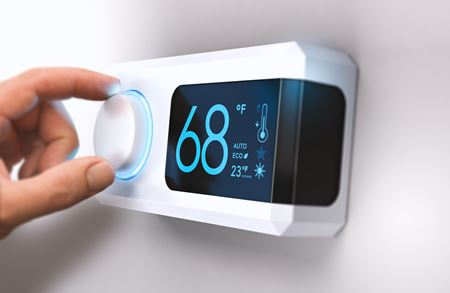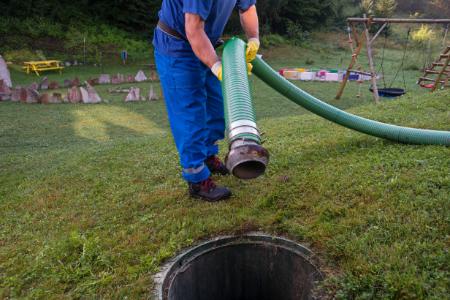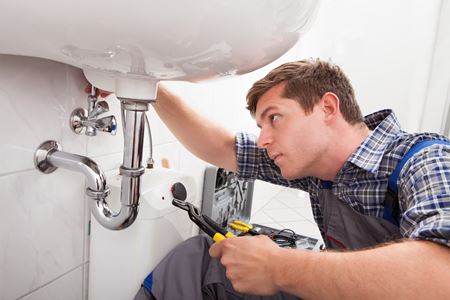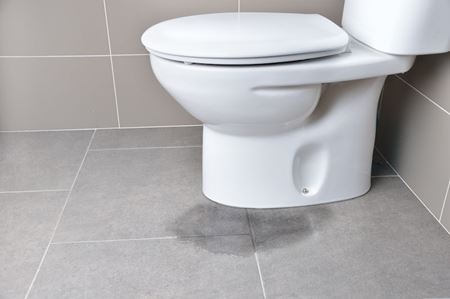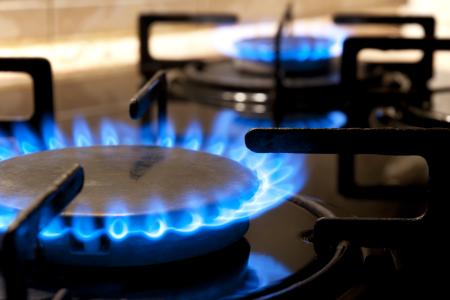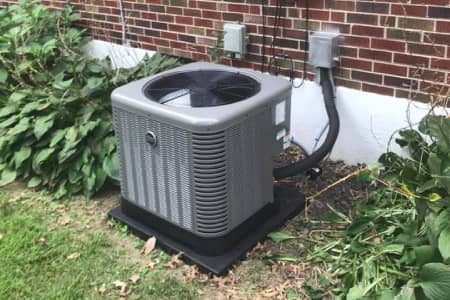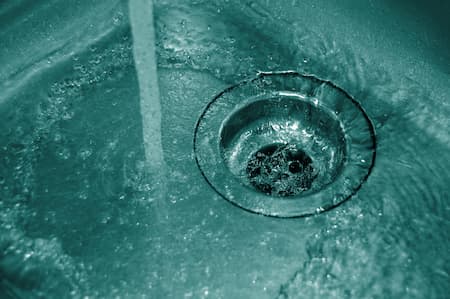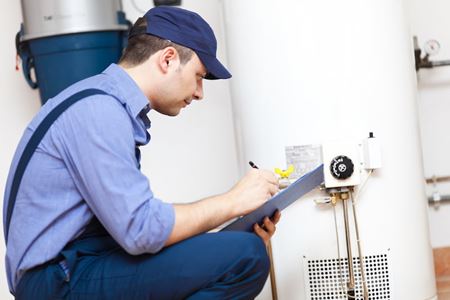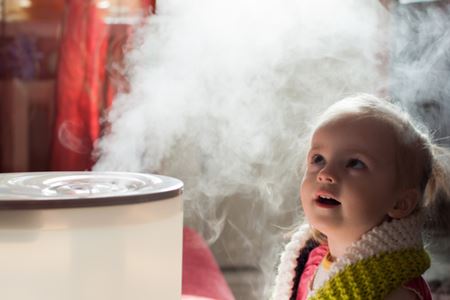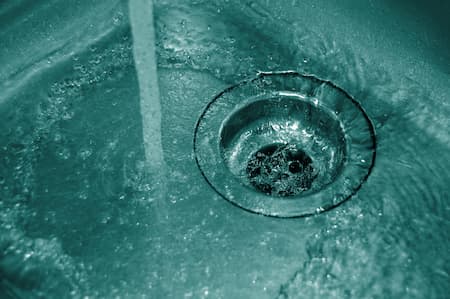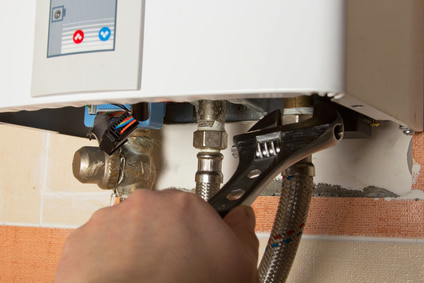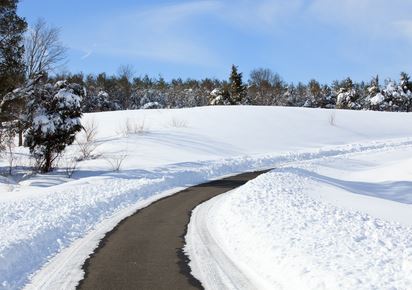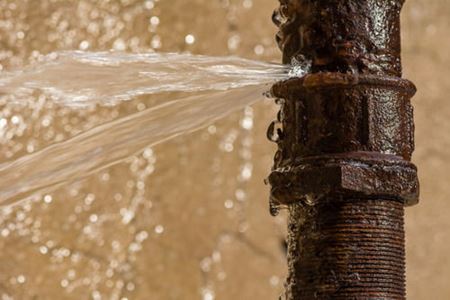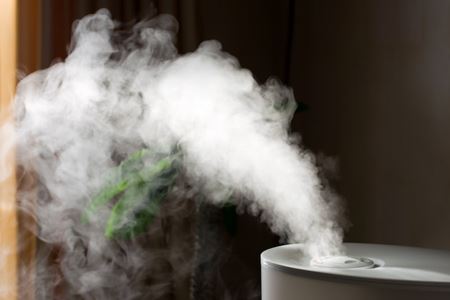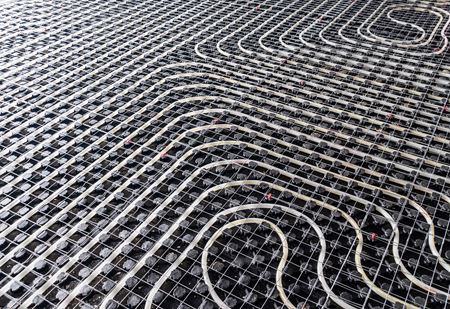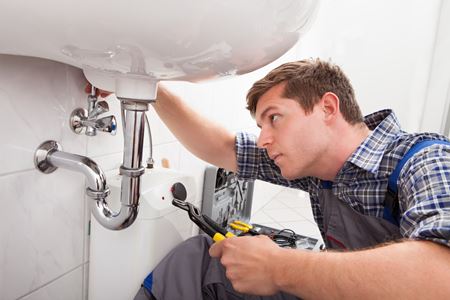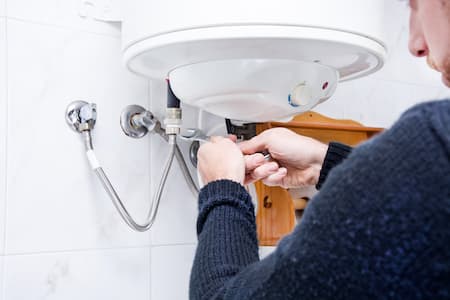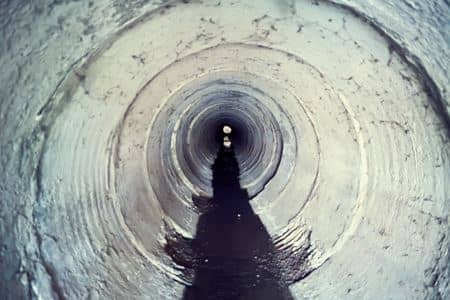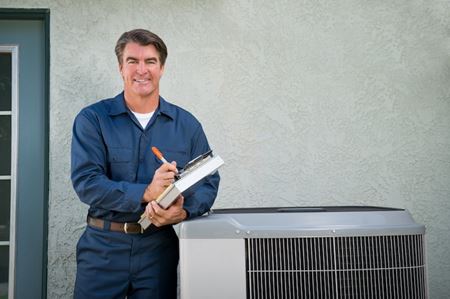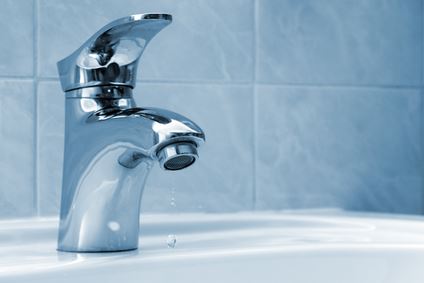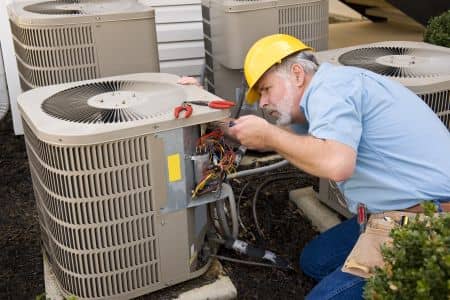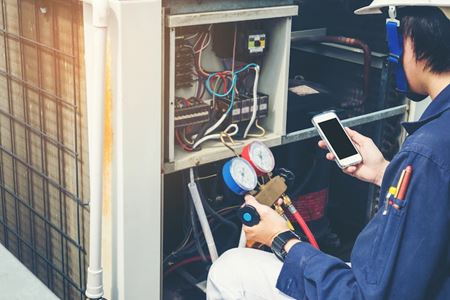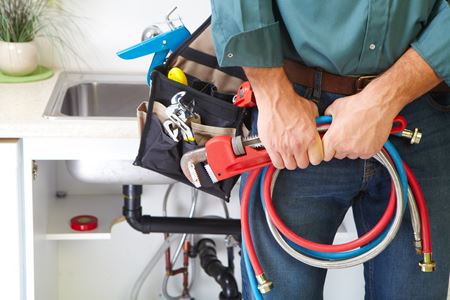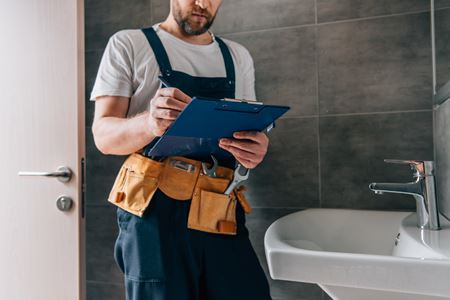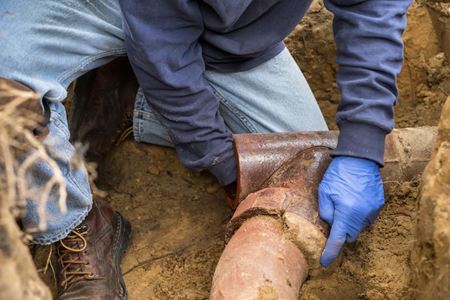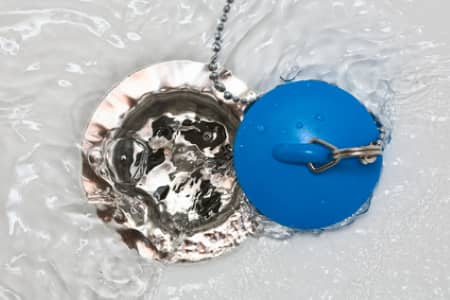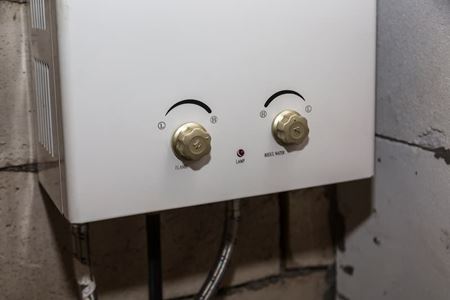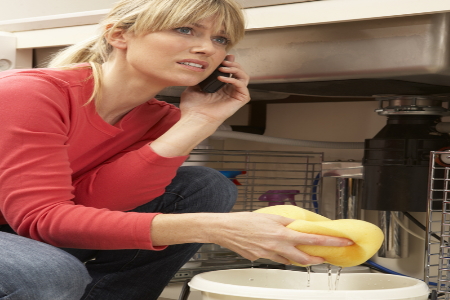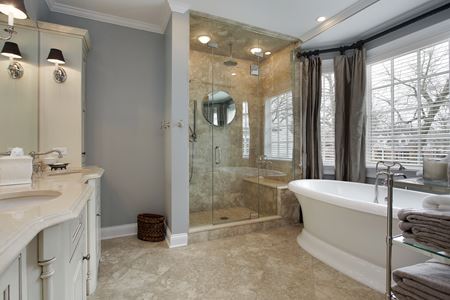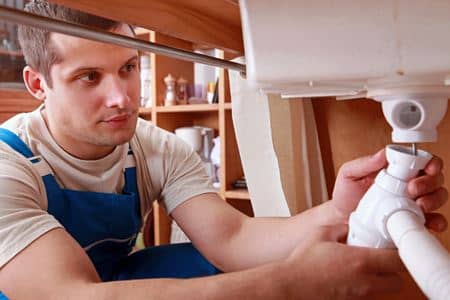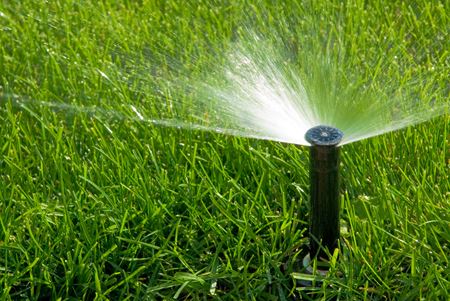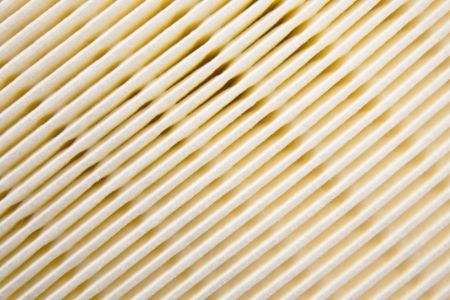Recent Tips and Articles by Mitchell Plumbing, Heating and Cooling
Why to Get a Zoning System
We all want to stay comfortable in our homes, of course. That’s why we maintain dependable heating and cooling in our homes. If you’re looking for one of the best HVAC options for your Pittsburgh area home, you might consider a zoning system, which offers a […]
Read Full ArticleWhen to Get a Sewer Line Cleaning
To maintain the best comfort and sanitation in your Greater Pittsburgh area home, you need to maintain a well-functioning plumbing setup. Unfortunately, your plumbing is likely to suffer over time as sewer line blockages begin to develop. These blockages can render you unable to use some […]
Read Full ArticleWhat You Need to Know Before Installing a Heat Pump
Heat pumps do more than just heat the home; they also cool it and help to control the levels of humidity in your house. Buying and installing a heat pump is a major investment, and you should consider several factors to ensure that you get the […]
Read Full ArticleWhen You Should Call a Plumber
When it comes to our plumbing system, most homeowners do not know when a problem requires the services of a professional plumber. Sometimes a drain that will not unclog could mean there is something more serious with a plumbing system. The work of plumbers is much […]
Read Full ArticlePressure-Assisted Flush Toilets: A Guide for Homeowners
Toilets are among the busiest utilities in the home. On average, a person flushes the toilet about 5 times a day and utilize 3.5-7 gallons of water with every flush in a standard gravity toilet. A high-efficiency toilet can help minimize your total household water usage. Advances […]
Read Full Article5 Signs There’s Something Wrong With Your Gas Line
Using natural gas to heat your home and power your appliances is generally safe, but if there’s a gas leak or other issue with your gas line, it can be very dangerous. Knowing the signs of a gas line problem will help you keep your family […]
Read Full ArticleWhich Type of AC Is Right for You?
Even with great insulation, your home can get uncomfortably hot during the summer, and unless you have an air conditioning system, you can’t do much to get cool. If you want to replace or install an AC unit before summer hits, you have many options to […]
Read Full Article4 Underrated Ways to Take Care of Your Plumbing System
Common plumbing system maintenance advice includes mesh screens on your drains, professional drain cleaning when your drains clog, and periodic professional plumbing inspections. But unless you’ve done quite a bit of research on the subject, you may not realize how many other simple steps you can […]
Read Full ArticleFailing Water Heater Signs
Like any other appliance, your water heater will wear over time and eventually need to be replaced. Knowing the signs of a failing water heater is the best way to avoid being stuck for days without hot water. Here are four signs that it may be […]
Read Full ArticleWhat Are the Benefits You’ll Enjoy with a Humidifier?
Your home: It’s where you’ll most likely spend the majority of your downtime. So, you need to make sure your home is the most comfortable place in your life. If you’re trying to figure out ways to add extra comfort to your home, you might want […]
Read Full ArticleWhy Is A Bad Smell Coming From Your Clean Kitchen Sink?
You come into the kitchen and stop short when something unpleasant assails your nose. Did you forget to take out the trash? No, the smell is coming from the kitchen sink drain. In some cases, a smelly drain could mean you need plumbing help. In other cases, […]
Read Full ArticleHow “Green” Is Your Hot Water?
No, we’re not talking about the color of your hot water – although green water could indicate a problem. We’re talking about how your water is heated and about how much water and energy you could be conserving by switching to a tankless water heater (instant […]
Read Full ArticleLeaving for the Winter? 6 Steps to Winterize Your Plumbing
If you’re a snowbird, you need to take special care of your home before you leave for the winter. This is particularly important where your plumbing is concerned. Overnight temperatures can dip into the freezing range in the Pittsburgh area. Once your Pittsburgh plumbing is exposed […]
Read Full ArticlePrevent Burst Pipes in Pittsburgh
Of all the things that a homeowner can do to maintain their plumbing systems, the following five tips can help keep money in your pocket and visits from your Pittsburgh plumber to a minimum. 1. Check for leaks. Even the smallest leak can turn into a torrential flood […]
Read Full ArticleHow a Whole House Humidifier Can Be Beneficial
Air that is too dry can cause problems in your home. The solution? A whole house humidifier. Here is how a whole house humidifier could improve your health and the health of your home — and a look at the whole house humidifier options available to […]
Read Full ArticleWarm Your Home With Radiant Heating
When outdoor temperatures in the Pittsburgh area drop, a warm home can be a real comfort. Many types of heating systems are available to help homeowners achieve the warm interiors they desire. You are probably familiar with forced-air heating and baseboard heating systems, but a radiant […]
Read Full ArticlePlumbing: Types of Pipes
Plumbing is part of many remodeling projects, whether the plan is to install a small clean-up sink in a garage or the project is a bathroom addition or a complete kitchen or bathroom remodel. Whether you are doing the remodel yourself or you are hiring a […]
Read Full ArticleTankless Water Heater Pros and Cons
If you’re ready to replace your old water heater, you might want to consider getting a tankless water heater, as this option offers a number of great benefits for your Pittsburgh area home. On the other hand – it also offers some downsides. To know if […]
Read Full ArticleMain Sewage Lines
Your sewer or septic drain line has a special role: it’s not exactly part of the city sewer system (or your septic system), but it’s not exactly indoor plumbing either. Instead, it connects the two. Here’s what you need to know about the main sewage line. The […]
Read Full ArticleFox Chapel Office Air Conditioning
If you install the right kind of air conditioning in an office, you will discover that under more pleasant working conditions staff productivity goes up. Therefore, contacting your Fox Chapel air conditioning specialist makes good business sense. When you are buying air conditioning for a new […]
Read Full ArticleSummer Pre-Vacation Plumbing Checklist
Summer is here and that means your family vacation is just around the corner. Whether you’re leaving for a long weekend or going out of town for an extended trip, leaving your home protected is an essential step in your pre-vacation planning. Along with securing your […]
Read Full ArticlePittsburgh Air Conditioning Tune-Ups
Just because your air conditioning unit is tucked away in a space in your home, behind closed doors or up in your attic space, doesn’t mean it will run for years without needing any attention. Yet many homeowners forget about this important mechanical system because it’s […]
Read Full ArticleRegular Braddock Air Conditioning Servicing Saves You Costs
If your Braddock air conditioning unit begins to malfunction, it may be time to have it professionally serviced. Among the common problems encountered by most Braddock homeowners is that the air coming out of the air conditioning unit does not feel as cold as they want […]
Read Full ArticleElizabeth Plumbing Concerns Best Left In The Hands Of The Pros
Do not even attempt to tinker around with your home’s Elizabeth plumbing and pipe work unless you want to run the risk of having water running all over the place soaking up your floors, furniture, and other fixtures. There are professional plumbers who have the expertise […]
Read Full ArticleNoisy Plumbing? What You Need to Know
Your plumbing system should operate relatively quietly, which is why it can be quite alarming when you start to hear noises from the pipes and other water systems in the home. Often, these noises are an early diagnostic tool that can help you catch a plumbing […]
Read Full Article4 Signs You Have Sewage Line Issues
The sewer line running from your home to the city sewer system is critical to the proper operation of all the plumbing in your home. Every drain in the home runs into the sewer line, so if there is a problem with that line, you will […]
Read Full ArticleDo You Have Clogged Pipes?
Part of remodel planning for any room in your Pittsburgh home that has pipes and faucets is to determine whether you have clogged pipes that need to be cleaned or replaced. Pipes can collect mineral build-up or rust over time. In some cases, this corrosion or […]
Read Full Article3 Ways an On Demand Water Heater Can Improve Your Showers
If you’re in the market for a new water heater, you may have heard about the benefits of choosing an on-demand model rather than the traditional model with a water tank. An on-demand water heater can help you manage hot water use in a large family […]
Read Full ArticleAvoid Plumbing Emergencies
Plumbing emergencies due to broken or leaky pipes, clogged drains, overflowing toilets, and broken water heaters are stressful and costly, especially if you have an emergency at night or on a weekend or holiday. Take care of your plumbing to prevent expensive emergency repairs. You can avoid […]
Read Full ArticleCool Bathtub Upgrades
Homeowners thinking about a bathroom remodel in an older house have a lot of upgrades to consider. One of the most important aspects of this type of project is upgrading your bathtub. An up-to-date tub is often the centerpiece of a successful bathroom remodel. Here is […]
Read Full Article3 Reasons to Invest in New Pipes
Water plays an essential role in your household. Homeowners rely on the water produced by taps and faucets to be safe and secure, but they rarely think about the impact their pipes have on water quality. Outdated or damaged pipes can pose a real threat to your […]
Read Full Article4 Baby Steps to Using Water Efficiently Outdoors
Some tips for reducing water waste in your yard include intimidating to-dos like replacing all your sprinklers with soaker hoses or creating a graywater reuse system from scratch. But you don’t have to go all in with these major projects to show your support for the […]
Read Full ArticleAlleviate Spring Allergies With These 3 Indoor Air Quality Tips
For many homeowners out there, spring is a welcome relief from the colder winter temperatures, but if you are one of the many homeowners who suffers from seasonal allergies, the transition from winter to spring can be a particularly trying time. Here at Mitchell Plumbing, Heating […]
Read Full ArticleAir Cleaner Benefits
The quality of your Pittsburgh home’s indoor air directly affects your home’s overall quality. Since you’re bound to spend the great majority of your downtime in your home, you need to take steps to ensure it is the best place to spend all of that time. When […]
Read Full ArticleSave With Our Preferred Customer Program
With our Preferred Customer Program, you can enjoy exclusive savings and benefits while keeping your home’s plumbing and HVAC systems running smoothly. Members of our Preferred Customer Program gain access to special offers and promotions throughout the year, making it easier and more affordable to keep your home comfortable. Whether it's seasonal HVAC tune-ups or plumbing inspections, you'll save time and money with our program. Sign up today and start enjoying the peace of mind that comes with being a preferred customer!
Learn More About Preferred Customer ProgramMake Sure All Your HVAC and Plumbing Needs Are Taken Care Of In Pittsbugh & Surrounding Areas
